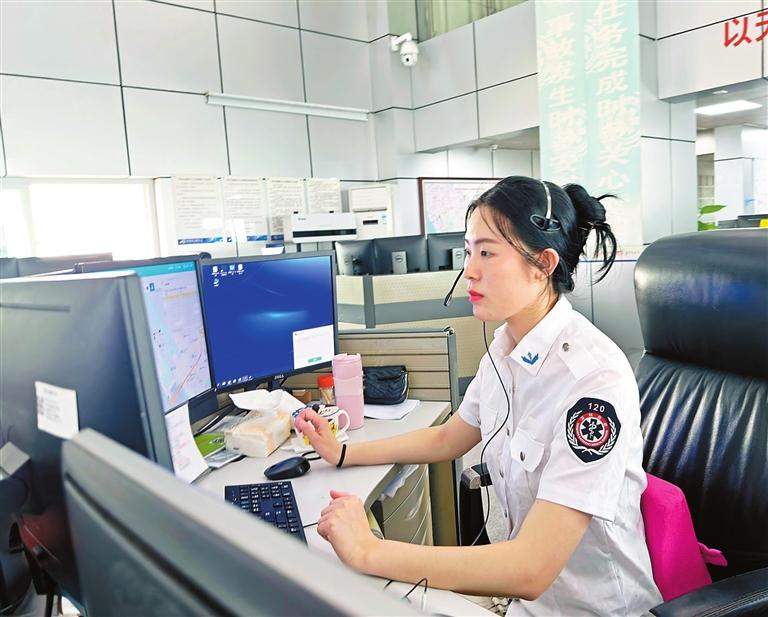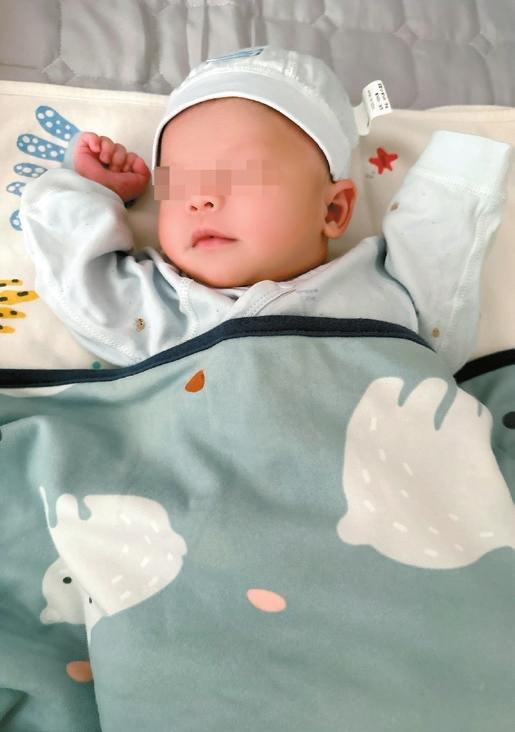

Zhang Yu JeniZhang13@163.com IN just 14 minutes, an expectant father in Shenzhen successfully delivered his baby and performed cardiopulmonary resuscitation (CPR) under the guidance of a dispatcher from the Shenzhen Center for Prehospital Care via a phone call. The nerve-racking story, which was featured on China Central Television’s program News Weekly on Saturday, garnered widespread attention, with netizens giving a thumbs-up to the dispatcher’s professionalism and the father’s composure. The man, surnamed Kang, called the emergency medical assistance hotline 120 at 8:51 a.m. April 7, four days ahead of his second child’s due date, as his wife was experiencing a precipitous labor at home. Deng Manli, a dispatcher at the Shenzhen Center for Prehospital Care, was on the other end of the phone. Upon receiving the call, Deng remained calm and provided remote guidance to help Kang deliver and perform CPR for the baby, who was found not breathing upon birth. Fortunately, Kang had received emergency training at the center before. Under Deng’s guidance, Kang went through the process smoothly. His rapid response and first aid helped snatch the baby from the jaws of death. “I was on speakerphone while delivering,” Kang said, adding that he and his family were at a loss at the time, but he listened to the guidance provided by the dispatcher and successfully delivered the baby. “[She would] follow me at every step before moving on to the next step. It feels like she was teaching me how to operate on site,” Kang said. At 9:02 a.m., the ambulance arrived at the entrance of Kang’s residential compound. Medical staff promptly transferred Kang’s wife and child to the hospital, where both received a thorough examination and were confirmed to be in good health. The story, initially reported by local media in April, immediately garnered attention and received applause and praise from netizens. The city’s MPDS, or Medical Priority Dispatch System, was reported to have played a critical role in this thrilling emergency. According to the Shenzhen Center for Prehospital Care, since MPDS was adopted Nov. 23, 2021, the city’s 120 dispatchers have assisted citizens in 61 emergencies over the phone before ambulances arrived at the scene, including eight emergency deliveries, two choking cases and 51 cardiac arrest cases. The center emphasized that emergency dispatchers are no longer mere operators; they are equipped with professional knowledge. “We would receive training first and a certificate would be issued after we pass the assessment,” Deng said. “Only when we have the certificate can we use MPDS and teach people how to conduct first aid on site.” The center encourages more citizens to undergo emergency training like Kang as soon as possible. In recent years, the center has developed customized emergency courses for various groups, including prehospital medical staff and the general public. So far, the center has independently developed six different levels of emergency training courses and has established a preliminary emergency training course system for the public, according to Wang Xuemei, director of the center’s training department. | 
